Musa al-Gharbi in The Guardian:
 According to a number of polls and surveys, significant majorities of Republican-aligned voters seem to believe the big lie that Trump was the rightful winner of the 2020 US presidential election and, consequently, the Biden administration is illegitimate.
According to a number of polls and surveys, significant majorities of Republican-aligned voters seem to believe the big lie that Trump was the rightful winner of the 2020 US presidential election and, consequently, the Biden administration is illegitimate.
Taking these data at face value, a growing chorus insists that we’re living in a “post-truth” era, where members of one political party, the Republican party, can no longer tell facts from falsehood. As a result of the Republican party becoming unmoored from reality, the narratives typically continue, America is drifting headlong into a fascist takeover or a civil war.
Fortunately for all of us, these dire predictions are almost certainly overblown. We are not living in a “post-truth” world. We are not on the brink of a civil war. The perception that we are is almost purely an artifact of people taking poll and survey data at face value despite overwhelming evidence that we probably shouldn’t.
More here.

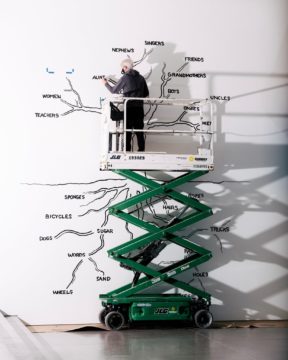 David Byrne is all about connectedness these days. “Everybody’s
David Byrne is all about connectedness these days. “Everybody’s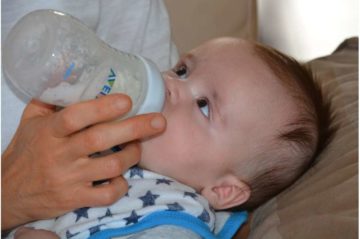 Researchers have explored the cellular changes that occur in human mammary tissue in lactating and non-lactating women, offering insight into the relationship between pregnancy, lactation, and breast cancer. The study was led by researchers from the Wellcome-MRC Cambridge Stem Cell Institute (CSCI) and the Department of Pharmacology at the University of Cambridge. Breast tissue is dynamic, changing over time during puberty, pregnancy, breastfeeding, and aging. The paper, published today in the journal Nature Communications, focuses on the changes that take place during lactation by investigating
Researchers have explored the cellular changes that occur in human mammary tissue in lactating and non-lactating women, offering insight into the relationship between pregnancy, lactation, and breast cancer. The study was led by researchers from the Wellcome-MRC Cambridge Stem Cell Institute (CSCI) and the Department of Pharmacology at the University of Cambridge. Breast tissue is dynamic, changing over time during puberty, pregnancy, breastfeeding, and aging. The paper, published today in the journal Nature Communications, focuses on the changes that take place during lactation by investigating 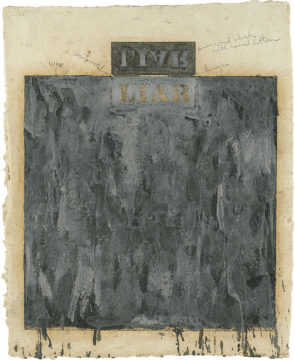 In contrast with this array of translucence, viscosity, gleam, Johns exploits the matte, the opaque, the alkaline. His wax encaustic, charcoal, grease, paint stick all militate—it would seem—against sheen.
In contrast with this array of translucence, viscosity, gleam, Johns exploits the matte, the opaque, the alkaline. His wax encaustic, charcoal, grease, paint stick all militate—it would seem—against sheen.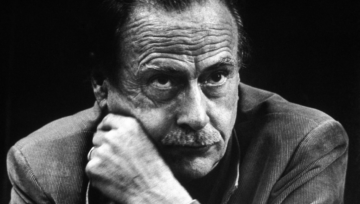 McLuhan’s impact on journalism was significant. His message was that all the techniques and values of Victorian liberal journalism should be discarded. The old-fashioned search for truth, using the tools of balance, objectivity, and impartiality, no longer applied. Although greeted with indifference or derision by older journalists, McLuhan’s insight was a Damascene moment for many young writers. As one underground journalist explained in 1966:
McLuhan’s impact on journalism was significant. His message was that all the techniques and values of Victorian liberal journalism should be discarded. The old-fashioned search for truth, using the tools of balance, objectivity, and impartiality, no longer applied. Although greeted with indifference or derision by older journalists, McLuhan’s insight was a Damascene moment for many young writers. As one underground journalist explained in 1966: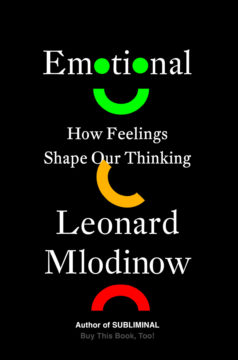 In the fall
In the fall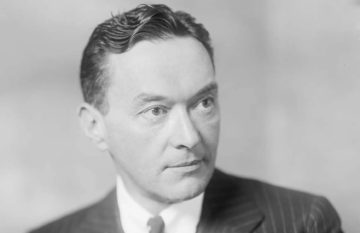 Mis- and disinformation, partisanship and polarization, crisis points and public trust—the big problems of 2022 were tackled by Walter Lippmann in his book
Mis- and disinformation, partisanship and polarization, crisis points and public trust—the big problems of 2022 were tackled by Walter Lippmann in his book 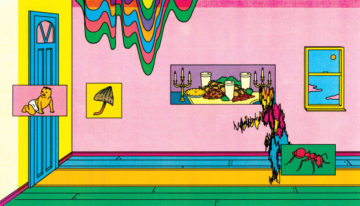 So without further ado, I decided to try to crawl. I managed to plant my elbows securely but not my knees, and then nailed my knees but not my elbows. This happened several times. I turned over repeatedly on the floor, remembering how I’d rolled down sand dunes at the beach as a child. I lay on my back and managed to drag myself over the floor with my heels, in a kind of inverse crawl. I lay on my belly again and tried using my toes and elbows, but I couldn’t move forward: a slug would have beat me in a hundred-centimeter sprint. Then I realized, or discovered, that I had never crawled as a baby. I’d asked my mother about this recently on the phone. “I’m sure you did. All children crawl,” she said. It bugged me that she didn’t remember. She remembered that I learned to talk very early (she said this as though referring to an incurable disease) and that I started walking before I turned one, but she didn’t have a memory of me crawling. “All children crawl,” she told me, but no, Mom: not all of them do.
So without further ado, I decided to try to crawl. I managed to plant my elbows securely but not my knees, and then nailed my knees but not my elbows. This happened several times. I turned over repeatedly on the floor, remembering how I’d rolled down sand dunes at the beach as a child. I lay on my back and managed to drag myself over the floor with my heels, in a kind of inverse crawl. I lay on my belly again and tried using my toes and elbows, but I couldn’t move forward: a slug would have beat me in a hundred-centimeter sprint. Then I realized, or discovered, that I had never crawled as a baby. I’d asked my mother about this recently on the phone. “I’m sure you did. All children crawl,” she said. It bugged me that she didn’t remember. She remembered that I learned to talk very early (she said this as though referring to an incurable disease) and that I started walking before I turned one, but she didn’t have a memory of me crawling. “All children crawl,” she told me, but no, Mom: not all of them do. G
G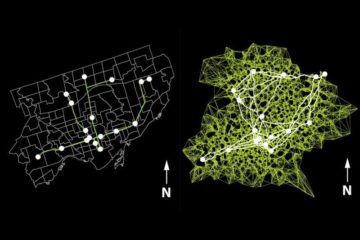 It doesn’t have a brain and survives on rotting vegetable matter—but it could offer valuable insights into city planning, according to a team of University of Toronto researchers. Physarum polycephalum is a
It doesn’t have a brain and survives on rotting vegetable matter—but it could offer valuable insights into city planning, according to a team of University of Toronto researchers. Physarum polycephalum is a  The Last One is French-Algerian writer Fatima Daas’s autobiographical debut novel, translated beautifully into English by Lara Vergnaud. Fatima Daas is both the pseudonym of the author and the name of the narrator in this hypnotising, lyrical book. Fatima lives in the majority-Muslim Parisian banlieue of Clichy-sous-Bois, with her parents and sisters, who were all born in Algeria. She’s the only one born in France, the youngest child in the family; she is “the last one”.
The Last One is French-Algerian writer Fatima Daas’s autobiographical debut novel, translated beautifully into English by Lara Vergnaud. Fatima Daas is both the pseudonym of the author and the name of the narrator in this hypnotising, lyrical book. Fatima lives in the majority-Muslim Parisian banlieue of Clichy-sous-Bois, with her parents and sisters, who were all born in Algeria. She’s the only one born in France, the youngest child in the family; she is “the last one”. The word ‘endemic’ has become one of the most misused of the pandemic. And many of the errant assumptions made encourage a misplaced complacency. It doesn’t mean that COVID-19 will come to a natural end.
The word ‘endemic’ has become one of the most misused of the pandemic. And many of the errant assumptions made encourage a misplaced complacency. It doesn’t mean that COVID-19 will come to a natural end. Embracing academia has provided a platform for the recently ennobled economist to air her views in a forthcoming book,
Embracing academia has provided a platform for the recently ennobled economist to air her views in a forthcoming book,